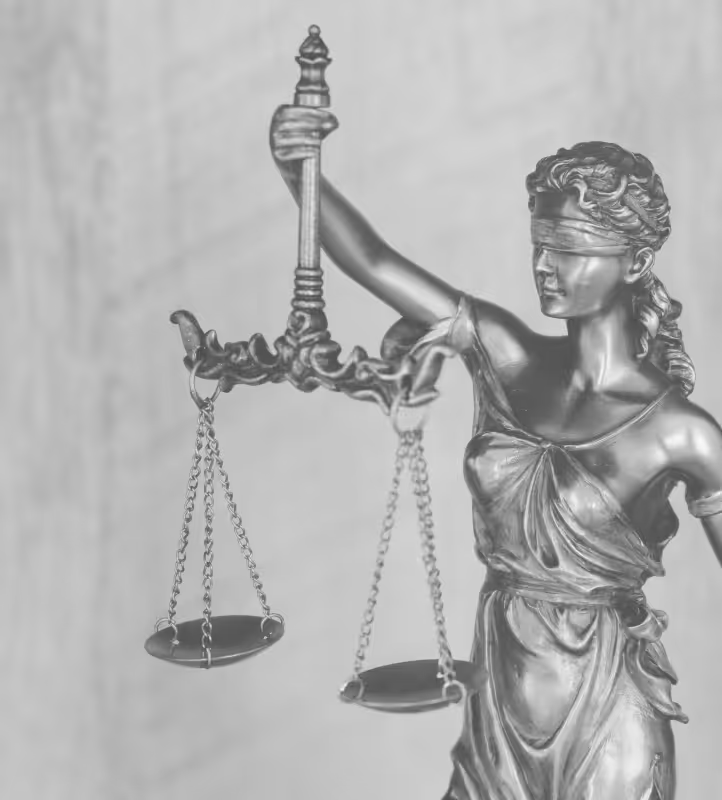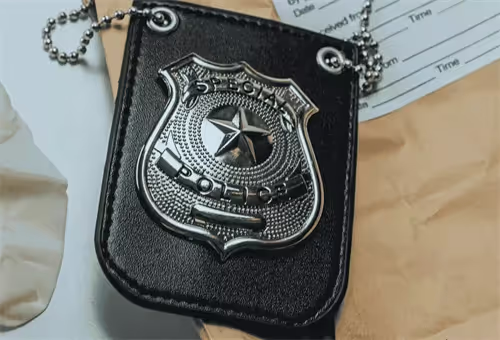Assault Occasioning Actual Bodily Harm

Understanding Assault Occasioning Actual Bodily Harm (AOABH)
Assault Occasioning Actual Bodily Harm (AOABH) is a serious criminal offence charged when an assault causes more than minor or trivial injuries to another person.
It falls under the category of indictable offences, meaning it can be dealt with in either the Local Court or District Court depending on the circumstances. Unlike a common assault charge, AOABH requires the prosecution to prove that the victim suffered tangible harm.
If you or someone you know is facing an Assault Occasioning Actual Bodily Harm charge, it is crucial to seek legal advice as soon as possible. Brightstone Defence Criminal Lawyers have extensive experience in defending AOABH cases and can provide clear advice, strong representation, and tailored defence strategies to protect your future.
The term actual bodily harm refers to any injury that is more than merely transient or trifling. It does not need to be permanent or life-threatening but must have some level of seriousness beyond a temporary or minor impact. Examples of actual bodily harm include:
- Bruises, cuts, or abrasions
- Swelling or lasting pain
- Psychological injuries such as shock or anxiety (if clinically diagnosed)
- Loss of teeth or black eyes
* A fractured bone that may be considered as grievous bodily harm
Under Section 59 of the Crimes Act 1900, AOABH is defined as an assault that results in actual bodily harm to the victim. The maximum penalties are:
- Imprisonment: Up to 5 years
- Imprisonment (in company): Up to 7 years
Australian courts take these offences seriously, particularly in cases involving domestic violence or repeat offenders. The severity of the sentence depends on factors such as the extent of the injury, the circumstances of the assault, and whether the accused has prior convictions.
Elements the Prosecution Must Prove
To secure a conviction for AOABH, the prosecution must establish beyond a reasonable doubt that:
- An Assault Occurred – The accused applied force or threatened force against another person unlawfully.
- Actual Bodily Harm Resulted – The assault caused harm beyond transient or trifling injuries.
- Intent or Recklessness – The accused either intended to cause harm or was reckless as to whether harm would occur.
The prosecution must also prove that the accused did not act in self-defence or under other lawful circumstances.
Possible Defences
If you are charged with AOABH, potential legal defence may include:
- Self-Defence – If you acted to protect yourself or another person from immediate harm.
- Duress – If you were forced to commit the act due to threats of serious harm.
- Necessity – If you acted to prevent greater harm from occurring.
- Lack of Intent – If you did not intend to cause actual bodily harm and were not reckless in your actions.
- Consent – In some cases, if the victim consented to the act, it may serve as a defence (e.g., during sports activities).
A skilled criminal defence lawyer can assess the evidence against you and determine the best strategy to challenge the prosecution’s case.
Potential Penalties
The court may impose various penalties depending on the severity of the offence, including:
- Conditional Release Order (CRO) – A good behaviour bond without a conviction
- Community Correction Order (CCO) – A supervised order with conditions
- Intensive Correction Order (ICO) – A custodial sentence served in the community under strict conditions
- Imprisonment – A custodial sentence served in prison
The sentence will depend on factors such as the seriousness of the injury, prior criminal history, and any mitigating circumstances.

Legal Process
& Options
Being charged with Assault Occasioning Actual Bodily Harm is serious and can have lasting consequences on your criminal record, employment, and personal life. However, the legal process provides opportunities to challenge the charge, negotiate the facts, or seek a more lenient outcome. The most important step is to obtain legal representation early, so that your rights are protected and your options are fully explored.
Pleading
Not Guilty
If you believe you did not commit the offence or there is insufficient evidence against you, you may plead not guilty. Your lawyer can challenge the prosecution’s case by:
- Examining the credibility of the evidence and witnesses
- Arguing that the injuries do not amount to actual bodily harm
- Establishing a legal defence (such as self-defence or duress)
If the prosecution cannot prove the case beyond a reasonable doubt, you will be found not guilty, and the charges will be dismissed.
Pleading
Guilty
If you admit to the charge, you may choose to plead guilty. Doing so can result in a more lenient sentence, as it demonstrates remorse and willingness to accept responsibility. The court may consider mitigating factors such as:
- A lack of prior criminal history
- Good character references
- The objective seriousness of the offending
- The subjective case of the offender
- Demonstrating remorse and taking responsibility
- Voluntary rehabilitation or anger management courses
Depending on the circumstances, you may be eligible for a reduced penalty, such as a conditional release order instead of imprisonment.
No, actual injury is not required. It is enough that your behaviour would cause a person of reasonable firmness present at the scene to fear for their safety.
- No.
Yes, affray can happen in a private setting if a “person of reasonable firmness” would be fearful if they were present.
If you acted in self defence or your actions were reasonable given the circumstances, this may be a viable legal defence for your case. It is important to seek legal advice and representation to argue your case justly.
Yes, but a custodial sentence is not inevitable. Depending on the circumstances of your case, first time or cases of low objective seriousness may receive non-custodial sentences.
- No
Physical contact is not always necessary. You can be charged with common assault simply for threatening or attempting to cause harm, as long as the victim had a reasonable fear of immediate violence.
- Yes
A conviction for common assault will result in a criminal record, which can affect your employment, travel, and future opportunities.
However, it may be possible to avoid a conviction if the court is persuaded to deal with the matter under Section 10.
Once charges are laid, it is up to the police or prosecution to proceed or withdraw them, not the victim. While a victim’s wishes may be taken into account, the decision to continue lies with the Director of Public Prosecutions (DPP) or NSW Police.
- Yes
A verbal threat can amount to common assault if it causes the victim to fear immediate and unlawful violence.
The threat must be serious enough and made in a context where the victim genuinely believes harm could occur imminently.
The main difference lies in the extent of injury. Common assault does not require proof of injury, while AOABH involves physical harm that is more than transient or trifling, such as bruises, cuts, or psychological trauma. AOABH carries heavier penalties.
You should not be found guilty if you acted in lawful self-defence. The court will consider whether you believed the force was necessary and whether your response was proportionate. This is a common and valid legal defence.
- No
Injury is not required. Common assault can occur from a threatening gesture, a slap, a shove, or any act that causes another person to fear unlawful force or experience minor physical contact without consent.
Failing to attend court may result in a warrant for your arrest being issued. It is crucial that you appear in court on the specified date or arrange legal representation to act on your behalf if possible. Always contact the court or your lawyer if you’re unsure.
- Yes, but only at the discretion of the police or the prosecution.
If there is insufficient evidence or the alleged victim refuses to cooperate, the prosecution may withdraw the charge upon the negotiation between the lawyer and the police. However, charges can still proceed even without the victim’s support.
- Yes, courts in NSW can issue a non-conviction outcome under Section 10 of the Crimes(Sentencing Procedure) Act 1999.
This means you are found guilty but no conviction is recorded. This may be more likely if the offence was minor and you have no prior record.
Common Assault involves causing fear orapprehension of immediate violence or minor physical contact withoutsignificant injury. AOABH involves an assault that causes actual physicalinjury beyond minor or transient harm.
“Actual bodily harm” includes injuries that interfere with the health or comfort of the victim and are more than insignificant. Examples include:
- Bruising or swelling
- Lacerations or cuts
- Nosebleeds
- Yes, it isan indictable offence.
However, it is triable summarily in the Local Court under certain conditions (depending on seriousness and election by the prosecution or defence).
- Yes
If a single punch causes injuries such as bruising, lacerations, or a nosebleed, it may be sufficient to support an AOABH charge.
This offence occurs when a person:
- Assaults, resists, hinders, obstructs, or intimidates a police officer,
- While that officer is acting in the execution of their duty.
It is covered under Section 58 of the Crimes Act 1900 (NSW). It includes physical force, verbal threats, or any act that interferes with an officer’s lawful role.
Resisting refers to any physical or active opposition to a lawful police action (e.g., pulling away during arrest). Hindering may involve more passive interference, such as:
- Giving false information
- Blocking police from accessing a location
- Encouraging someone else to resist arrest
- No
The officer does not need to be in uniform, but they must identify themselves clearly as a police officer.
The offence only applies when the officer is lawfully performing their duties (e.g. not off-duty or acting unlawfully).
If you can prove that you reasonably believed your actions were necessary to defend yourself or another, you may have a valid self-defence argument. This defence must be carefully supported by the circumstances and facts.
To be found reckless, the court must find that a reasonable person in your position would have realised there was a substantial risk of causing serious injury. If the risk was not obvious or foreseeable, that may be a defence. A classic example could be, one threw a glass bottle towards another person’s face, which caused a blind eye. A reasonable person would realise the eye could have been injured by do so.
In some cases, legal representatives can negotiate with the prosecution to reduce the charge to assault occasioning actual bodily harm (AOABH) or common assault, depending on the injury, evidence, and intent.
"Wounding" involves breaking both the inner and outer layers of the skin (e.g. a deep cut or puncture), while "GBH" involves more severe or permanent injuries.
Wounding with intent is serious, but GBH with intent usually results in harsher penalties due to the greater level of harm caused.
“To cause GBH or wounding with intent” means the prosecution must prove that the accused deliberately intended to cause serious harm or injury to another person, not just acted recklessly.
It is important to note that intent is a crucial element and must be proven beyond reasonable doubt.
- Yes
If the prosecution can prove there was intent to cause GBH or wounding even if the harm wasn’t permanent or as severe as intended you can still be convicted under Section 33 of the Crimes Act 1900(NSW).
- Yes
- A Criminal lawyer can help you by:
- Explaining your rights and the legal process.
- Assessing whether you have valid defence.
- Negotiating with prosecutors to reduce charges or penalties.
- Preparing your case for court and advocating on your behalf.
- Helping minimise the impact on your future, such as avoiding a criminal record.
- Early legal advice can significantly improve your chances of a favourable outcome.
You should contact a criminal lawyer as soon as you are charged, approached by police, or if you believe you may be under investigation.
Early legal advice is critical in protecting your rights and preparing your defence.
- Look for a criminal lawyer with proven experience in defending assault and violence offences, strong knowledge of local courts, and a history of achieving successful results for clients.
Common Assault involves causing fear orapprehension of immediate violence or minor physical contact withoutsignificant injury. AOABH involves an assault that causes actual physicalinjury beyond minor or transient harm.
“Actual bodily harm” includes injuries that interfere with the health or comfort of the victim and are more than insignificant. Examples include:
- Bruising or swelling
- Lacerations or cuts
- Nosebleeds
- Yes, it isan indictable offence.
However, it is triable summarily in the Local Court under certain conditions (depending on seriousness and election by the prosecution or defence).
- Yes
If a single punch causes injuries such as bruising, lacerations, or a nosebleed, it may be sufficient to support an AOABH charge.
- Yes
- A Criminal lawyer can help you by:
- Explaining your rights and the legal process.
- Assessing whether you have valid defence.
- Negotiating with prosecutors to reduce charges or penalties.
- Preparing your case for court and advocating on your behalf.
- Helping minimise the impact on your future, such as avoiding a criminal record.
- Early legal advice can significantly improve your chances of a favourable outcome.
You should contact a criminal lawyer as soon as you are charged, approached by police, or if you believe you may be under investigation.
Early legal advice is critical in protecting your rights and preparing your defence.
- Look for a criminal lawyer with proven experience in defending assault and violence offences, strong knowledge of local courts, and a history of achieving successful results for clients.
SUCCESS CASES & ARTICLES
Brightstone Defence delivers focused criminal defence services year-round and has built a strong track record of successful outcomes.
Meet our lawyers
WORLD CLASS
REPRESENTATION
100+ 5 Star Reviews
Personalised legal strategies tailored to each case
Recognised leaders in criminal defence law
Free initial consultation and case evaluation
Proven success in high-stakes and complex cases
Get AN instant estimated Quote
and a free consultation session
Facing criminal charges? Our experienced criminal defence lawyers are here to help. Book your free consultation now to discuss your case and understand your options.










